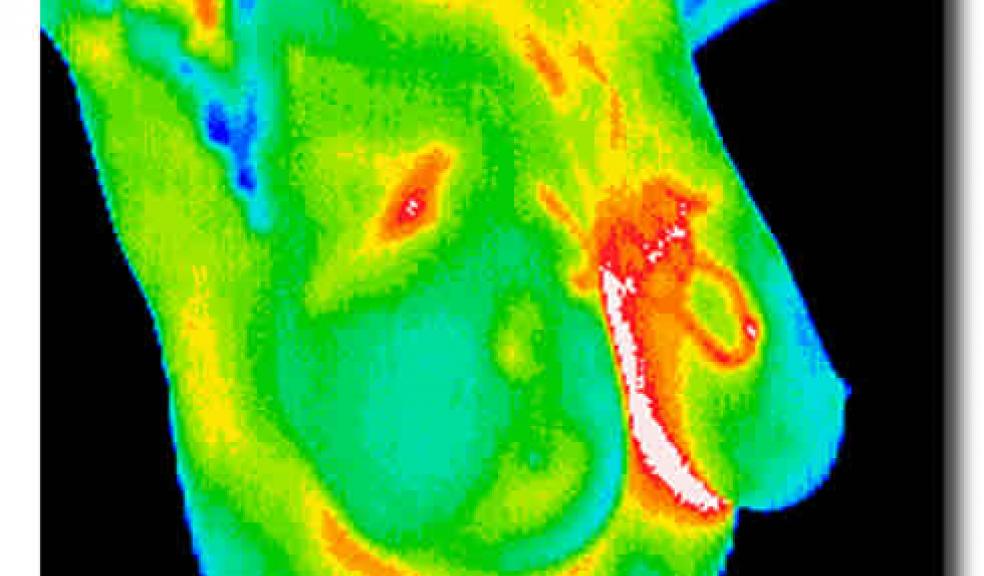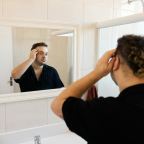
Test that identifies seven classes of breast cancer could be available within two years say UK scientists
Writing in the British Journal of Cancer, the Nottingham researchers say a new test could help doctors tailor treatment better and boost survival rates.
Local business woman Terri Bainbridge, who recently launched Thermalogica, a ground-breaking health screening service with business partner Lisa Portman, gives her first-hand experience of having cancer and how this inspired her to start-up this new venture….
Terri Bainbridge: So it’s breast cancer awareness month again, but is all this ‘awareness’ actually teaching us anything?
Breast cancer hit my radar back in 2005 when Kylie Minogue was diagnosed and I thought: "Wow, if she can get it anyone can, even me." After feeling my breasts and thinking they felt a bit lumpy, I made an appointment with the doctor to check if this was normal. She gave me a thorough examination and said everything was fine. Call me a hypochondriac but I wanted a bit more proof than that so the doctor indulged me and an ultrasound was scheduled. This showed I had a couple of cysts in my left breast but again I was told this was perfectly fine and sent on my way.
However, six years later I found a small lump in my left breast and went back to the doctor who again said that doesn’t feel like anything to worry about but come back in a month if it’s still there. Christmas came and went with a nagging worry in the back of my mind but I tried not to think about it. The lump didn’t go away so back I went to the doctor who then sent me to the RD&E (Royal Devon and Exeter Hospital) where the breast cancer specialist also said the lump didn’t feel suspicious but he’d send me for a mammogram just to be sure. I was also given a needle biopsy to test the tissue.
I honestly thought I was wasting everyone’s time so when a letter arrived asking me to return to the RD&E to get my results I called up and asked just to be told over the phone. After an awkward silence and then being told I had to come in, I still didn’t twig, so I did the weekly shop and went to the appointment on my own.
Being told you have cancer is one of the most terrifying experiences of your life. You immediately think you’re going to die. I had two beautiful children who might grow up without a mother. When I told my husband, Sam, we both clung to each other and cried.
I was given the choice to have just the lump removed or my whole breast. After breast feeding two kids my boobs weren’t up to much so I decided to have my whole breast removed just to get rid of it and asked for the operation as soon as possible. What I was later told shocked me. After the surgery they examined the removed breast and found that the lump I’d found was sat on top of a very large tumour the size of a Satsuma, which had probably started growing 10-15 years previously – in my 20s!. “What?! But I had a mammogram. Why didn’t you see it?” - I didn’t even want to think about what if I’d only chosen to have the small lump removed.
It turns out I have dense breast tissue. This shows up as white on a mammogram as do tumours. Check out some of the images on www.areyoudense.org and you’ll see it’s no wonder tumours get missed. I’m not a freak, over 60% of women under the age of 50 have dense breast tissue – one of the reasons mammograms aren’t routinely offered to younger women – they’re only 54% effective in this age group. But 30% of older women have dense breasts too, you don’t just stop having them at age 50 and mammograms are only 78% effective in over 50s. Do you know what your breast density is? Probably not. But it’s right there on your mammogram and your doctor knows. Why aren’t we being told? If you have dense breast tissue you should be told and offered additional screening such as an ultrasound. However, by the time a tumour is big enough to be seen on these scans it’s been growing for over 8 years.
But I’d had an ultrasound back in 2005. What could I have done differently? More research led me to thermal imaging, which is a test of function or physiology rather than anatomy. Thermal imaging can show the activity relating to a growing tumour eight to ten years before it is big enough to be detected by a mammogram. If I’d had a thermogram back in 2005 when the ultrasound found the cysts we’d have probably seen activity relating to a growing tumour rather than a harmless cyst. Research has proved that a test of function AND a test of anatomy will detect at least 95% of early stage breast disease. I couldn’t believe thermal imaging wasn’t more widely available as it’s used a lot in America. There are a couple of clinics in Harley Street but only about 20 in the whole of the UK so I retrained and set up my own here in Exeter.
Until I was told my daughter, Billie, had a brain tumour and was probably going to die, being told I had breast cancer was the worst day of my life. After I was told that though, four months after I was originally diagnosed, breast cancer became a walk in the park! I know so much more about breast cancer now, it’s not scary. Knowledge is power.
I was actually called in for a mammogram and ultrasound a few months ago for my remaining breast and I must admit I thought well what’s the point of the mammogram? I was curious to see what was said though so I went along with it. After the mammogram, the doctor came in to do the ultrasound and told me that everything was fine with the mammogram. "But did it show I’ve got dense breast tissue?" I asked. "Yes, it did." "So you can’t actually tell me for sure if everything’s fine then can you?" The doctor looked a bit sheepish and said "No, we can’t, that’s why we’re doing the ultrasound as well but to be honest, as you have private health insurance you probably have a good case for asking for an MRI".
I bet you don’t get told that on the NHS but at least he acknowledged I had dense breast tissue when I asked. When a friend recently went for a mammogram on the NHS and asked the same question she was told "We’re not allowed to give you that information". Shocking. Why? Because any woman in her right mind would then insist on additional testing, costing the NHS more. There is also evidence that you have a greater risk of breast cancer if you have dense breast tissue.
The most vulnerable are at most risk using an ineffective screening method and they don’t even know it.
There are women in America – they start annual mammograms at age 40 – who have been diagnosed with late stage breast cancer after having years of ‘clear’ mammograms. These women have successfully campaigned for a law to be passed, that when a woman has a mammogram she must be told her breast density. We must demand the same in the UK. This will surely save lives.
Useful links: www.areyoudense.org ...http://pinklotusbreastcenter.com/breast-cancer-101/2013/05/the-californi... ...http://www.nysenate.gov/press-release/senate-successful-passing-measures...
Thermalogica is a recently formed local company providing a ground-breaking health screening service to clients across the South West. Exeter-based business partners Terri Bainbridge and Lisa Portman launched Thermalogica to provide revolutionary Digital Infrared Thermal Imaging (DITI), which detects heat to measure the physiological activity in a body using a sophisticated camera to create a map or thermal fingerprint of the infrared patterns of the body.
Still relatively new to the UK, DITI is widely established throughout America and some parts of Europe and is supported by 30 years of research and over 8000 published medical studies. Thermal Imaging is used as an aid for diagnosis and prognosis for various health issues including strokes, heart disease and cancers. The thermal scans also provide an insight for people who have incurred injuries and wish to monitor their rehabilitation.
Thermal imaging is now available in Exeter at Radiance MediSpa www.thermalogica.co.uk
by Terri Bainbridge











